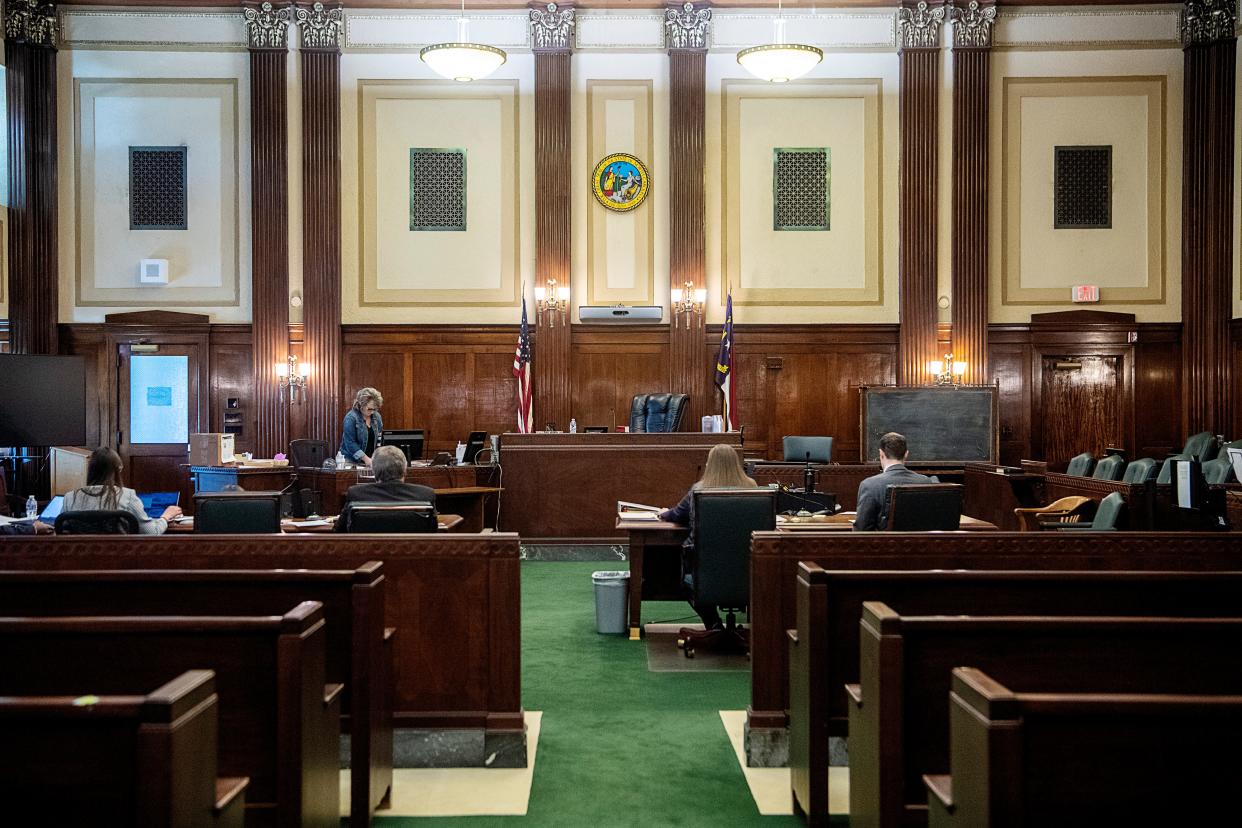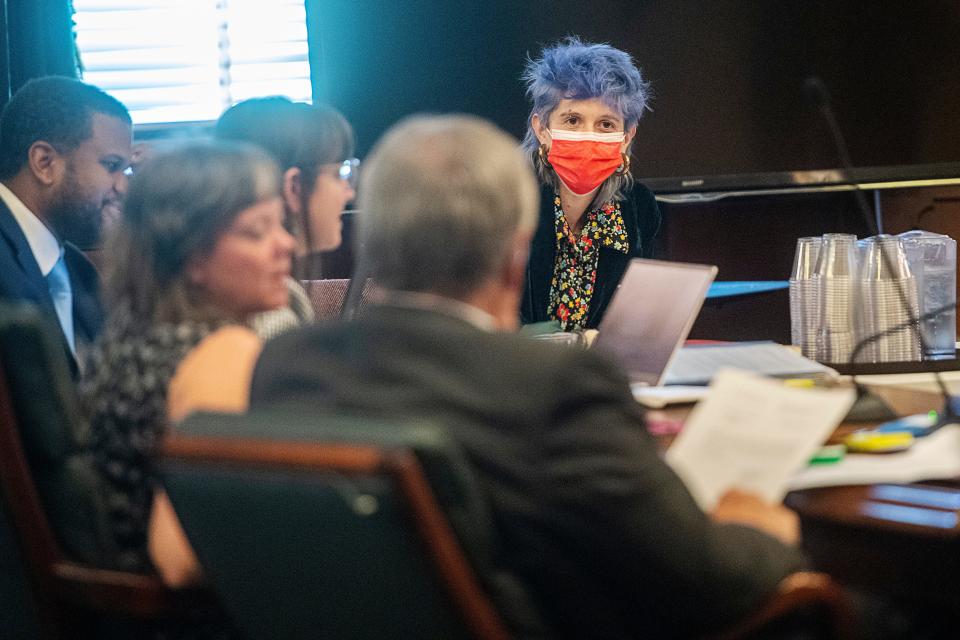Judge denies Asheville felony littering case dismissal; no sanctions for lost evidence

ASHEVILLE — A tentative new trial date has been set in a Buncombe County Superior Court felony littering trial, after lost and late-submitted evidence required lawyers, defendants and a judge to start over.
This comes after Superior Court Judge Jacqueline Grant signed an order Aug. 31, officially denying the defendants’ request for dismissal of charges or suppression of evidence from a cellphone that was destroyed while in the Asheville Police Department’s evidence room.
Defendants Amy Hamilton and Pageant Quinn Nevel were set to go to trial in April for felony littering charges dating back to a December 2021 protest in Ashton Park, before issues with discovery forced the district attorney’s office to reschedule. Police charged 16 individuals for the demonstration, saying they dumped “more than 2,000 pounds of litter and refuse” while protesting a series of police sweeps of encampments that winter and calling for sanctuary camping for the city's homeless population.
Hamilton and Nevel sought a dismissal of the case for the “alleged failure to preserve exculpatory evidence in bad faith,” according to the judge’s order obtained by the Citizen Times Sept. 12. As an alternative, the defendants sought an order to suppress the admission of evidence obtained from a seized cell phone.

The cellphone belonged to Reece Jaksec — who was charged by APD Jan. 2, 2022, with throwing a rock into City Hall — and held entire encrypted Signal threads with felony littering defendants, flyers and other evidence. Senior Police Officer Sam DeGrave, who spearheaded the investigation while on temporary assignment at the Criminal Investigations Division following an injury, took charge of photographing the Signal messages as evidence after they failed to download from the phone due to the app’s end-to-end encryption software, according to the court document.
However, DeGrave claimed he did not realize it was possible to click “read more” to expand messages on the Signal App, according to the court document, resulting in some messages not being submitted as evidence. According to the court document, DeGrave did not realize until a March 2023 meeting with Assistant District Attorney Katie Kurdys that these messages had not been expanded and photographed.
When Kurdys asked DeGrave to go back and photograph the unexpanded message threads, he discovered that the phone’s battery had expanded while in APD’s evidence room and was no longer usable.
No attempt has been made to send the cellphone to a third part vendor for possible repair, according to the order.
On Aug. 31, Grant denied both defendants’ motions under the grounds that DeGrave’s failure to document all content from the phone was not done in bad faith and that this failure did not cause “irreputable prejudice to the defendant’s preparation” in the case. She found it to be “purely speculative” that the missing content contained exculpatory evidence, or evidence that could show the defendant’s innocence.
More: Asheville mutual aid volunteers face 'absurd' felony littering charges, lawyer says
ACLU federal lawsuit: NC ACLU: Asheville, police chief, parks director violated protester constitutional rights
More: NC ACLU: Asheville, police chief, parks director violated protester constitutional rights
In addition to the lost evidence, 188 images out of 257 from DeGrave’s work phone failed to upload to the digital evidence website used by APD. The officer realized this failure April 18 — the day after jury selection had begun for the case — and provided the images to Kurdys on a hard drive. A copy of these additional images was then provided to the defense council.
Despite the discovery violation, Grant has decided that “the court’s decision to continue the trial in this case to a later date after the defendant has had an opportunity to review the additional images is sufficient and no other sanctions are warranted.”
District Attorney Todd Williams confirmed a “tentative” trial date has been set for Nov. 13, but he was unable to provide further comment on an ongoing case.
Defense attorney Martin Moore told the Citizen Times Sept. 14 that this case will be on the motion and plea calendar in October so “we can examine whether or not Habekah Cannon (Moore’s new co-counsel) has sufficient time to jump into a trial that has been going on for this long.”
“That might be the best place where we address any sanctions or outstanding issues and any additional motions Habekah wants to add, as well as potential ACLU (American Civil Liberties Union) comment on what they think,” Moore said.
The Citizen Times spoke with Cannon, who said she was placed on the case Sept. 11.
“I received a terabyte of data and there’s still data to come that I have not even received from the state,” Cannon said, saying she cannot provide further comment until she has time to review the material. “My client was in an unfortunate situation where her former counsel had to leave her place of employment for another job opportunity.”
More: Family, friends remember Asheville teen murder victim on birthday; condemn gun violence
Ryley Ober is the Public Safety Reporter for Asheville Citizen Times, part of the USA Today Network. News tips? Email Ryley at rober@gannett.com. Please support local, daily journalism with a subscription to the Citizen Times.
This article originally appeared on Asheville Citizen Times: Asheville felony littering case dismissal denied new trial date set

